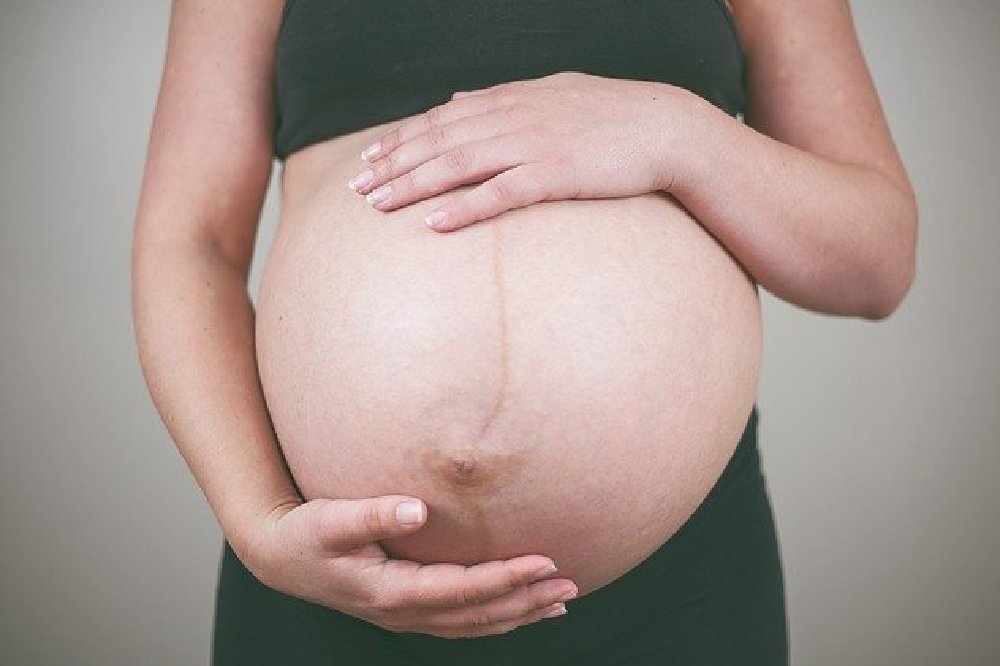A new study by the University of Edinburgh has found that stress in pregnancy may influence baby brain development, so we caught up with Professor Rebecca Reynolds Personal Chair of Metabolic Medicine to find out more.

Image courtesy of Pixabay
Infants’ brains may be shaped by levels of stress their mother experiences during pregnancy. Professor Reynolds explains; ‘Our study shows that maternal stress, as measured by the hormone cortisol, is associated with changes in the infant's structure and connections of an area of the brain that is associated with processing emotions’.
Stress levels in mothers – measured by a hormone linked to anxiety and other health problems – is related to changes in areas of the infant brain associated with emotional development, the study suggests.
Doctors say the findings highlight the urgent need for women to be better supported with their mental and physical health before and during pregnancy, and could help them spot mums and babies who need help.
Professor Reynolds said; ‘Women who are feeling stressed should reach out to their community midwives or other members of their health care professional team to seek out the most appropriate sources of help’.
Maternal stress is known to influence the development of the child’s behaviour and ability to regulate its emotions as it grows. This is usually measured by questionnaires, which are not always reliable.
The new study is the first time that scientists have used an objective measure – levels of the hormone cortisol – in the mother to study links with baby brain development.
Cortisol is involved in the body’s response to stress – with higher levels indicating higher stress – and also plays a role in foetal growth. Professor Reynolds notes however that ‘Everyone reacts to 'stressors' in different ways and there are lots of factors that influence levels of stress hormones in pregnancy.’
A research team showed that levels of cortisol are linked to the development of the baby’s amygdala, an area of the brain known to be involved in emotional and social development in childhood.
For the study, scientists took hair samples from 78 pregnant women to determine the women’s levels of cortisol in the previous three months.
‘Cortisol is a very important hormone that is essential for normal growth and development of the baby. We can measure cortisol in the mother's hair - and a 1cm section gives us a really good measure of the overall cortisol exposure during a month of the pregnancy,’ Professor Reynolds explains.
The women’s babies underwent a series of brain scans using Magnetic Resonance Imaging, or MRI, a non-invasive scan that took place whilst the baby slept.
The researchers found that higher levels of cortisol in the mother’s hair were linked to structural changes in the infants’ amygdala as well as differences in brain connections.
Doctors say this could explain why children whose mothers experienced high levels of stress during pregnancy may be more likely to have emotional issues in later life. Professor Reynolds added; ‘We know from other studies that increased stress in pregnancy can be linked to increased stress in the post-partum period. Our study is only looking at one snapshot of time. Follow-up studies are needed to know whether any effects persist. We know that interventions in early childhood can change the way the baby's brain continues to develop so it may also be possible to intervene to prevent any long term consequences.’
For women who are thinking about having a baby and are worried about their stress levels, Professor Reynolds advises; ‘There are lots of resources available for women who are planning pregnancy and we would recommend they seek early advice from their midwife or other members of the healthcare professional team. Thankfully, psychological treatments are very successful at helping mothers and children and we hope that our findings could guide therapies in future to help spot those who might be most in need of support.”
RELATED: Seven ways stress effects pregnant women
Pregnancy is a time of change; depending on how one adapts to change could alter how one experiences being pregnant. Life doesn’t stop because you are pregnant, yet you do feel different because of it! It can be common for women who are pregnant to experience an increased level of stress, however too much stress for a prolonged period can start to make women feel uncomfortable and impact their overall health & wellbeing... to read more click HERE


